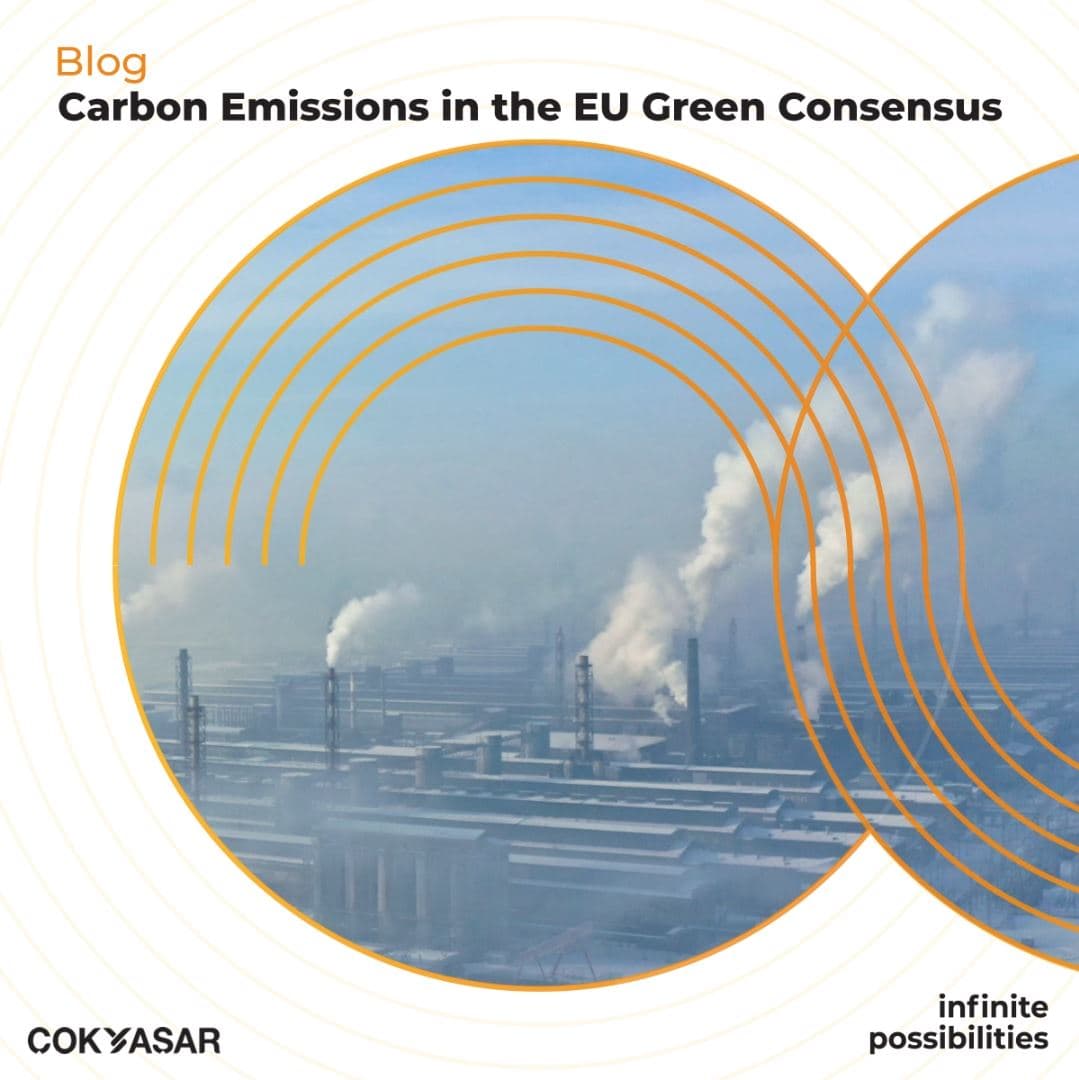‘Carbon Emission Studies within the EU Green Deal’
The European Green Deal was announced by the European Union Commission in December 2019 as an important step against climate change and environmental problems. With this agreement, a series of policy and action proposals are determined to ensure Europe's transition to a sustainable development model. The main goal of the agreement is to reduce greenhouse gas emissions by at least 50% compared to 1990 levels by 2030, and to turn Europe into a net-zero emission continent in 2050.
What is the European Green Deal?
The European Union aims to make Europe a carbon neutral continent by 2050 to prevent the negative effects caused by climate change and ensure environmental sustainability. In this regard, it published a strategy document called the European Green Deal in December 2019. This document plans to carry out a radical transformation in the industrial sector to make the EU's economic growth independent of carbon emissions and to comply with circular economy principles. This transformation includes concrete steps in many areas such as increasing the use of clean energy resources, increasing energy efficiency, improving waste management, protecting biodiversity and promoting green innovation.
The European Green Deal is shaped by the following basic goals;
- Reducing greenhouse gas emissions
- Energy efficiency
- Circular economy
- Clean and renewable energy
- Environmentally friendly production in industry
- A sustainable economy
The European Green Deal is a comprehensive strategy put forward by the European Union to combat the climate crisis and protect the environment. This strategy aims to align the EU's economic growth and social well-being with environmental objectives such as the efficient use of natural resources, improving biodiversity and preventing pollution.
To this end, it proposes a series of measures that will minimize the EU's carbon footprint; Areas such as clean energy production and consumption, energy efficiency, low-carbon alternatives in the transportation sector, green technologies in industry, sustainable materials in the construction sector, environmentally friendly practices in the agriculture and food sector, waste management and recycling are some of the important topics included in the memorandum.
The Green Deal also aims to create financial resources and make smart investments to make the EU's economic structure suitable for green transformation. In this context, the first steps of a program called the European Green Deal Investment Plan were taken. Thanks to this program, it is planned to provide approximately 1 trillion euros of investment for green transformation between 2021 and 2027.
The Green Deal also aims to develop new mechanisms to reduce carbon emissions in the EU's international trade activities. In this context, a tax system called carbon border adjustment mechanism stands out. This system envisages taxing goods imported from outside the EU according to their carbon content and aims to reduce the competitive advantage of countries that do not comply with the EU's climate targets and to encourage global climate action.
Border Carbon Regulation and Carbon Tax
One of the series of policies and actions determined by the EU to ensure green transformation both within itself and in its external relations is the Border Carbon Adjustment Mechanism (CBAM).
CBAM envisages applying a carbon tax to goods imported from countries that do not comply with the EU's climate targets; This tax is determined according to the carbon content of imported goods, and it is evaluated to prevent the measures taken by the EU to reduce carbon emissions from weakening its competitiveness and to encourage global climate action.
CBAM primarily covers sectors with a high risk of carbon leakage. Carbon leakage means that production is done in lower-cost and more polluted countries due to the high taxes and standards the EU imposes to reduce carbon emissions. CBAM aims to support the green transformation of the EU's industrial sector and provide a fair competition environment by introducing border tax for imported materials in these sectors.
CBAM will come into force in 2023 as an important part of the European Green Deal. Although issues such as how this mechanism will work, which sectors it will cover and which countries it will cooperate with are not yet clear, it is stated that it is an important step to reinforce the EU's climate leadership and accelerate the green transformation on a global scale.
Green Deal and Its Impact on Türkiye
The EU is our country's largest trading partner; For this reason, businesses such as cement, iron and steel, automobile and textile, which export large amounts from our country to EU countries, must continue their operations in accordance with this agreement. Our country continues its efforts to fulfill the requirements of the agreement in order not to be left behind in global competition and to take part in the new market.
Following the EU Green Deal announcements, the "Green Deal Action Plan 2021 (YMEP)" was prepared and put into effect in our country.
In the business world, sectors that are at the forefront of exports to the EU, from automotive to chemicals, from the environment to energy, from the iron and steel sector to agriculture and livestock, have accelerated their work within the scope of the Border Carbon Regulation.
All companies, from holdings to SMEs, are making investment and business plans to comply with the Green Deal process. Although high-emission sectors such as cement and construction, iron and steel, agriculture and animal husbandry are among those most affected by the implementation, the Green Deal has opened the doors of a new process by affecting all areas of the business world.
Within the scope of the "Green Transformation Action Plan", studies on green and circular economy, border carbon regulation, clean and renewable energy, sustainable agriculture, smart transportation and buildings, and combating climate change have begun to be implemented.
As Çokyaşar Holding, we produce environmentally friendly solutions to the climate crisis and environmental problems faced by the world; We support raising public awareness for a sustainable environment, invest in renewable energy sources, and obtain a portion of our factory's energy consumption from renewable energy sources.
